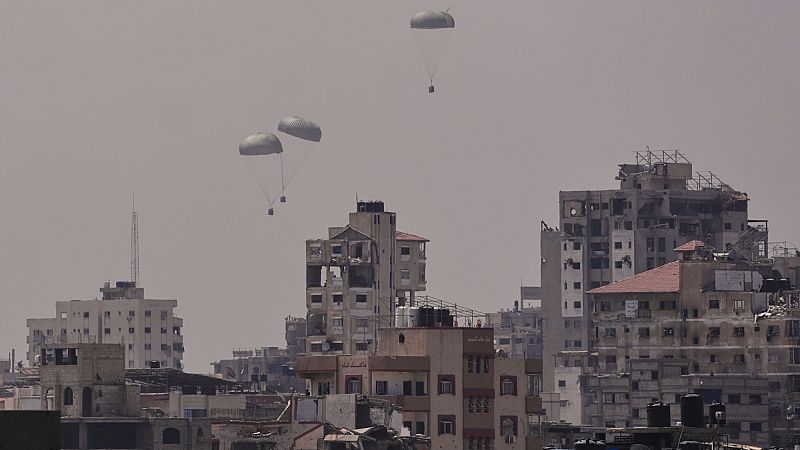Escalation in the Gaza Conflict Sparks Global Condemnation
European and world leaders have expressed strong criticism of Israel’s decision to seize control of Gaza City, highlighting concerns that this move could worsen the already dire humanitarian crisis in the region. The situation has reached a critical point, with Germany suspending its exports of military equipment that could be used in Gaza, marking a significant shift in its foreign policy stance.
The Israeli security cabinet approved the controversial plan on Friday, signaling a new phase in the country’s nearly two-year-long conflict with Hamas. This decision followed extensive discussions among senior security officials. While Prime Minister Benjamin Netanyahu had previously suggested that the military would “take control of all Gaza,” he also emphasized that Israel does not intend to occupy the Strip permanently.
Germany’s response has been particularly notable. Chancellor Friedrich Merz announced that the country will no longer authorize the export of military equipment that could be used in Gaza until further notice. This decision represents a departure from the Staatsräson, a core principle of German foreign policy that links Israel’s security closely with Germany’s national interests. Merz stated that the new military push by the Israeli security cabinet makes it increasingly unclear how the goals of the operation can be achieved. He added that the German government will refrain from authorizing any military equipment exports that could be used in the Gaza Strip until more clarity is provided.
International Reactions and Calls for Ceasefire
UK Prime Minister Keir Starmer strongly condemned the Israeli security cabinet’s decision, calling it wrong and urging Israel to reconsider its actions immediately. He warned that the offensive would not help bring an end to the conflict or secure the release of hostages but would instead lead to more bloodshed. Starmer emphasized the need for a ceasefire, increased humanitarian aid, the release of all hostages by Hamas, and a negotiated solution. He also stated that Hamas cannot play a role in the future of Gaza and must leave and disarm.
Other European politicians echoed these sentiments, warning that the takeover of Gaza would exacerbate the humanitarian disaster and that a ceasefire is the only way to end the ongoing war with Hamas. Spain’s foreign affairs minister, José Manuel Albares, condemned the decision, stating it would only provoke more destruction and suffering. His Dutch counterpart, Caspar Veldkamp, called Netanyahu’s plan a “wrong move,” while Slovenia’s Foreign Minister Tanja Fajon urged Israel to halt any attempts to militarily occupy Gaza. Finland’s Foreign Minister Elina Valtonen expressed extreme concern over the worsening conditions in Gaza and called for an immediate ceasefire and the release of Israeli hostages.
European Commission President Ursula von der Leyen called on the Israeli government to reconsider its decision to expand its military operations in Gaza. She emphasized the importance of releasing all hostages held in inhumane conditions, providing immediate humanitarian aid, and establishing a ceasefire. European Council President António Costa also reacted strongly, urging the 27-member bloc to take action against Israel’s decision, which he said violates international law and the EU’s recent agreement to improve the humanitarian situation in Gaza.
Divided Reactions Within Israel
Reactions within Israel were mixed. Opposition leader Yair Lapid criticized the government’s plan, arguing it contradicts the advice of military leadership. Chief of the General Staff Lieutenant General Eyal Zamir warned that the plan could endanger the lives of hostages and strain the military further. Prior to the security cabinet session, Netanyahu denied any intention of permanently controlling Gaza, stating that Israel aims to establish a security perimeter and eventually hand the Strip over to a coalition of Arab forces.
Ongoing Humanitarian Crisis
Humanitarian organizations continue to warn of severe conditions in Gaza, where widespread hunger and displacement are increasing daily. The ongoing conflict has displaced nearly the entire population of Gaza, destroyed over 60% of the enclave’s buildings and infrastructure, and brought most of its 2 million residents to the brink of famine. The war began when Hamas-led militants attacked southern Israel on 7 October 2023, resulting in the deaths of over 60,000 Palestinians, according to the Hamas-run Gaza Health Ministry. Israel’s military has also suffered significant losses, with nearly 900 soldiers killed since the start of the war.

